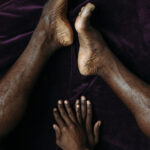This week’s episode of Dance Moms took an unexpected turn, blurring the lines between reality TV drama and real-life legal troubles, all centered around the infamous Abby Lee Miller. While the dance lessons were ostensibly the focus, the underlying narrative became significantly heavier, prompting reflection for both the on-screen mothers and viewers at home. The unfolding events served as a stark reminder of the complexities and sometimes harsh realities that can lurk beneath the surface of even the most glamorous reality television.
The episode began with a seemingly typical Dance Moms scenario. Abby Lee Miller was, in the words of the moms, acting “erratic.” This wasn’t the usual dance-instructor eccentricity; it was amplified to a level that raised eyebrows. Her behavior, described as “walking around screaming for someone to get her a teasing brush” and fixating on her appearance in the mirror, felt off-kilter even for Abby. One of the mothers astutely observed, “Something must be wrong. L.A. brings out the crazy in Abby,” hinting at a deeper issue beneath the surface antics.
Then came the bombshell. The mothers, portrayed as discovering the news through a morning show clip, learned about Abby’s criminal charges. Twenty counts of fraud, carrying a potential sentence of up to five years in prison, were the accusations leveled against Abby Lee Miller. The news sent ripples of concern through the group, with the mothers immediately grappling with the implications, not just for Abby, but for themselves and, most importantly, their daughters. The uncertainty of Abby’s future leadership and the potential disruption to their children’s dance aspirations became palpable.
This revelation provides a jarring moment for viewers, especially parents watching with their children. Explaining terms like “counts” and “bankruptcy fraud” to young viewers, as one parent recounts, becomes an impromptu and perhaps uncomfortable lesson in real-world consequences amidst the escapism of reality TV. The ethical questions raised are immediate: What message does this send to young viewers about accountability and the actions of authority figures? The mothers on the show, while expressing concern for Abby, also voiced anxieties about the impact on their daughters’ dance opportunities, highlighting the intertwined nature of their lives with Abby’s professional and personal dramas.
For the remainder of the episode, Abby adopted a strategy of denial and deflection. She refused to acknowledge the charges directly, effectively ignoring the mothers’ attempts to address the elephant in the room. Instead, she channeled her stress and anxiety into her interactions with Mackenzie, who was preparing for a solo performance. Abby’s verbal onslaught was brutal, filled with harsh critiques and comparisons. “You’re not good enough!”; “You’re lazy!”; “You have bad feet and ankles!”; “Work harder!”; “You are no Maddie!” were just some of the cutting remarks hurled at the young dancer, culminating in the deeply hurtful insult of calling Mackenzie a “smart ass,” driving her to tears.
This display of harsh criticism prompted Mackenzie’s mother, Melissa, to intervene – a rare occurrence, noted with surprise in the original article. This moment of parental defense, however belated, opens up a crucial discussion about the impact of such coaching methods on young performers. The question arises: at what point does tough love become detrimental, even abusive? And what role do parents play in protecting their children within demanding and high-pressure environments like competitive dance?
The author’s personal reflection takes center stage at this point, recounting pausing the show to ask her daughters a direct and poignant question: “After watching this horrible abuse, would you still want to be on Abby’s dance team?” Their affirmative answer, coupled with their admission of being afraid of Abby and, more surprisingly, their perception that their own mother “wouldn’t defend them,” delivers a powerful and unsettling moment of parental introspection. The episode, initially about dance and drama, suddenly becomes a mirror reflecting back on personal parenting styles and children’s perceptions of parental protectiveness.
The competitive outcomes of the episode – none of the girls winning solos and the team not winning the group competition – almost become secondary to the unfolding personal dramas. Abby’s cryptic warning to the mothers that they too might “wind up in jail, just like her” feels like a bizarre and deflecting threat, further underscoring the unusual atmosphere of the episode. The author’s concluding thoughts are consumed by the revelation of her daughters’ perceptions, overshadowing the dance competition results and Abby’s legal woes. The episode of Dance Moms, in this instance, transcends the typical reality TV fare, prompting deeper reflections on parenting, child psychology, and the impact of televised drama on family dynamics.

